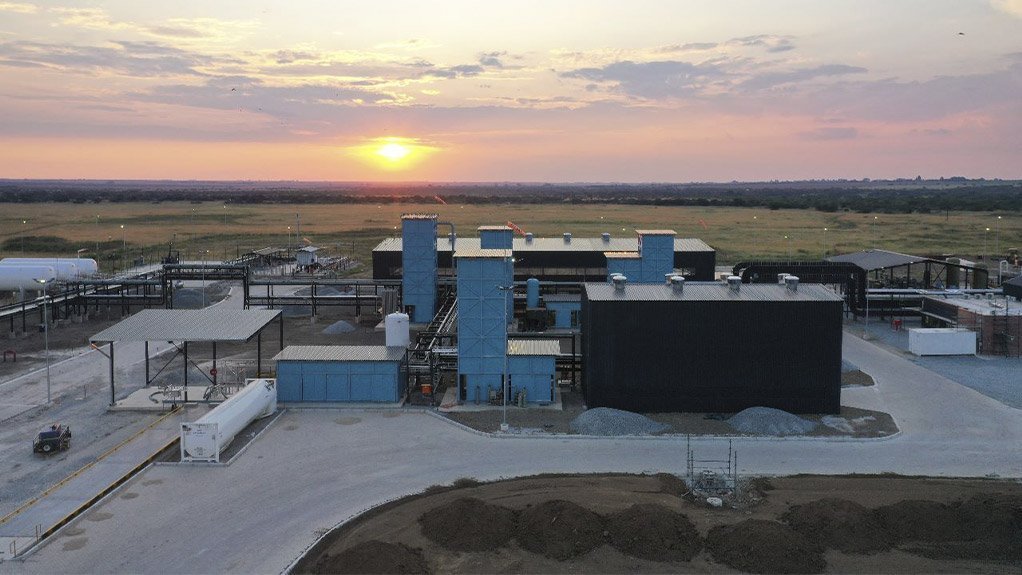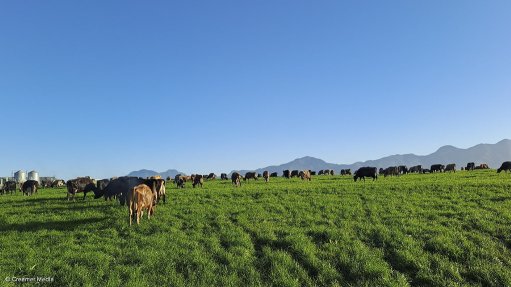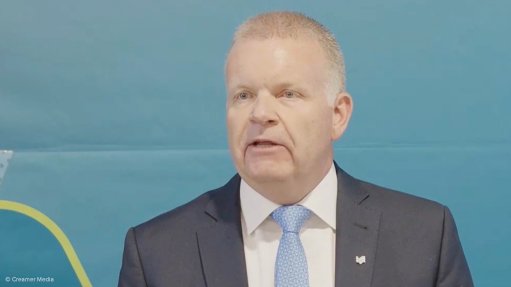Virginia gas project, South Africa – update


Photo by Renergen
Name of the Project
Virginia gas project.
Location
The project spans 187 000 ha of gasfields across Welkom, Virginia and Theunissen, in the Free State, South Africa.
Project Owner/s
Tetra4, a subsidiary of domestic natural gas and helium producer Renergen.
Project Description
The project entails the construction of 52 km of gas-gathering pipeline and cryogenic liquefaction processing facilities.
The aim is to produce all South Africa’s helium requirements and export the balance of production, as well as the first liquefied natural gas (LNG), for commercial consumption.
Phase 1 aims to produce up to 350 kg/d of helium. Output will be increased through the construction of Phase 2, expected in 2026, “arguably making it amongst the bigger helium projects on the planet", Renergen CEO Stefano Marani has said.
This will deliver more than 0.4-billion cubic feet (bcf) of helium, which, over 19 years, amounts to 7.6 bcf, or just over half of its estimated proven and probable reserves.
Phase 1 of the project will produce about 50 t/d of LNG, which is about 75 000 ℓ/d of diesel equivalent.
Phase 2 of the project will entail drilling additional gas wells, constructing additional gas-gathering pipelines and a larger processing and liquefaction facility, as well as the associated road tanker distribution and downstream customer dispensing facilities.
In this phase, production output will increase by 34 400 GJ/d of LNG and 4 200 kg/d of liquid helium, in addition to the Phase 1 operation.
Potential Job Creation
It will create an estimated 360 temporary jobs during development and construction, and an estimated 160 permanent jobs once all the clusters have been developed.
Capital Expenditure
The total Phase 1 projected capital expenditure to roll out the first phase of production was about R1-billion, which included the cryogenic liquefiers. Phase 2 is estimated at $1.16-billion.
Planned Start/End Date
Phase 2 of the Virginia project is expected to start construction in 2023 and is expected to start operations in 2026.
Latest Developments
Renergen has faced a series of challenges that have impacted on its operations and financial standing.
While liquidity pressures, production setbacks and environmental concerns have complicated Renergen’s meeting its commitments, the company has been in ongoing communication with lenders and stakeholders, who Marani has said are “fully supportive of the business’s continued growth.”
The company has already secured debt financing for Phase 2 of the project, with the process advancing smoothly as bidders actively engage. It is also working to ensure the successful completion of Phase 1c, which is in the planning stages.
These steps are integral to Renergen’s strategy for achieving long-term business goals, Marani has noted.
Renergen has faced technical setbacks in helium production, particularly with filling and cooling ISO containers, but the system is now stable and producing liquid helium, albeit at a reduced rate, owing to limited gas input.
The company has been addressing the challenge of cooling ISO containers to -269 °C. Achieving this temperature is difficult at the current production rate, as significant boil-off occurs during the cooling process from ambient to cryogenic temperatures, Renergen COO Nick Mitchell has explained.
However, as production ramps up, the company expects the time required to fill and cool the containers to decrease exponentially, not linearly. Renergen is exploring various solutions to mitigate supply chain vulnerabilities pertaining to cooling down ISO containers before filling them.
Another area of concern for investors and stakeholders has been Renergen’s commitment to supplying helium to the market.
Marani has clarified that while the seven-year timeline might be seen as a delay, the initial contract was altered to account for changes in the industry, including cost reductions in cryogenic separation technology.
Despite these setbacks, the company remains committed to fulfilling its contractual obligations and expects to start helium deliveries soon. Once the containers have been cooled to the desired temperature, the company can start building liquid levels in the containers. The frequency of filling will also reduce significantly when the plant is ramped up to full capacity.
To further ensure stability and meet output expectations for LNG and liquid helium, the company is focusing on plant stability and operational optimisation to improve efficiency, Marani and Mitchell have noted.
Renergen also completed a yearly maintenance cycle in September 2024, contributing to a more stable system.
Current work at the Virginia gas project involves ramping up production by drilling additional wells and installing necessary infrastructure such as compressors and pretreatment skids. The company is confident that, once this expansion is fully executed, it will achieve its design capacity and improve LNG and helium output levels.
Following recent sharp declines in Renergen’s share price, the company will focus on “delivery, delivery, delivery” to meet its operational targets and overcome the technical challenges that have previously impacted on progress, Marani has indicated.
As production increases and technical issues are resolved, the company anticipates regaining investor trust through consistent results and progress on key milestones, particularly with regard to helium production and the completion of Phase 2.
Phase 2 of Renergen’s development is considered critical to its survival and profitability, and while Phase 1 is now operational, it still needs to be ramped up to meet initial objectives, Marani adds.
Phase 2, however, is expected to drive significant cash flow and growth, creating opportunities for additional phases of development to address substantial portions of the broader natural gas crisis. Despite the challenges and delays associated with Phase 1, the proven resource remains untapped underground, Marani has confirmed.
Further, Renergen has been responding to environmental concerns raised by the Centre for Environmental Rights, which has objected to the Tetra4 project’s integrated water and waste management plan.
These objections, representing the interests of two local communities, resulted in the dismissal of five out of seven grounds of appeal, with two issues remaining under review. These unresolved issues pertain to the expansion of the climate change impact assessment and the development of a broader geohydrological model for the region.
Renergen is working on these studies and plans to submit updated assessments to Forestry, Fisheries, and the Environment Minister Dr Dion George for further review.
The company also continues to engage with environmental stakeholders.
Key Contracts, Suppliers and Consultants
Phase 1:
Sproule, formerly MHA Petroleum (helium reserve independent expert report); and VGI (owner’s engineer regarding the engineering and procurement phase of the project).
EPCM Bonisana (gas-gathering work), a subsidiary of EPCM Holdings (engineering, procurement and construction (EPC) contractor – Phase 1 gas-gathering pipeline).
Western Shell Cryogenic Equipment (technology and equipment); Babcock (DAF CF 430 trucks); and Volvo (FM440 trucks).
Phase 2:
Saipem (front-end engineering design, or FEED, contract for the development of the downstream LNG and liquid helium processing facilities, including the associated balance of the plant).
Sproule (evaluation and certification of reserves, based on the results of the additional data acquisition and current drilling campaign. This will build on previous work undertaken by MHA Petroleum Consultants, acquired by Sproule in 2019).
Worley RSA (scope of owners engineer role to execute the expansion of the Virginia gas project).
The company is tendering the EPC contract to experienced helium and LNG equipment suppliers, based on the FEED.
Contact Details for Project Information
Renergen, tel +27 10 045 6000, email info@renergen.co.za or investorrelations@renergen.co.za.
Article Enquiry
Email Article
Save Article
To advertise email advertising@creamermedia.co.za or click here
Press Office
Announcements
What's On
Subscribe to improve your user experience...
Option 1 (equivalent of R125 a month):
Receive a weekly copy of Creamer Media's Engineering News & Mining Weekly magazine
(print copy for those in South Africa and e-magazine for those outside of South Africa)
Receive daily email newsletters
Access to full search results
Access archive of magazine back copies
Access to Projects in Progress
Access to ONE Research Report of your choice in PDF format
Option 2 (equivalent of R375 a month):
All benefits from Option 1
PLUS
Access to Creamer Media's Research Channel Africa for ALL Research Reports, in PDF format, on various industrial and mining sectors
including Electricity; Water; Energy Transition; Hydrogen; Roads, Rail and Ports; Coal; Gold; Platinum; Battery Metals; etc.
Already a subscriber?
Forgotten your password?
Receive weekly copy of Creamer Media's Engineering News & Mining Weekly magazine (print copy for those in South Africa and e-magazine for those outside of South Africa)
➕
Recieve daily email newsletters
➕
Access to full search results
➕
Access archive of magazine back copies
➕
Access to Projects in Progress
➕
Access to ONE Research Report of your choice in PDF format
RESEARCH CHANNEL AFRICA
R4500 (equivalent of R375 a month)
SUBSCRIBEAll benefits from Option 1
➕
Access to Creamer Media's Research Channel Africa for ALL Research Reports on various industrial and mining sectors, in PDF format, including on:
Electricity
➕
Water
➕
Energy Transition
➕
Hydrogen
➕
Roads, Rail and Ports
➕
Coal
➕
Gold
➕
Platinum
➕
Battery Metals
➕
etc.
Receive all benefits from Option 1 or Option 2 delivered to numerous people at your company
➕
Multiple User names and Passwords for simultaneous log-ins
➕
Intranet integration access to all in your organisation



















